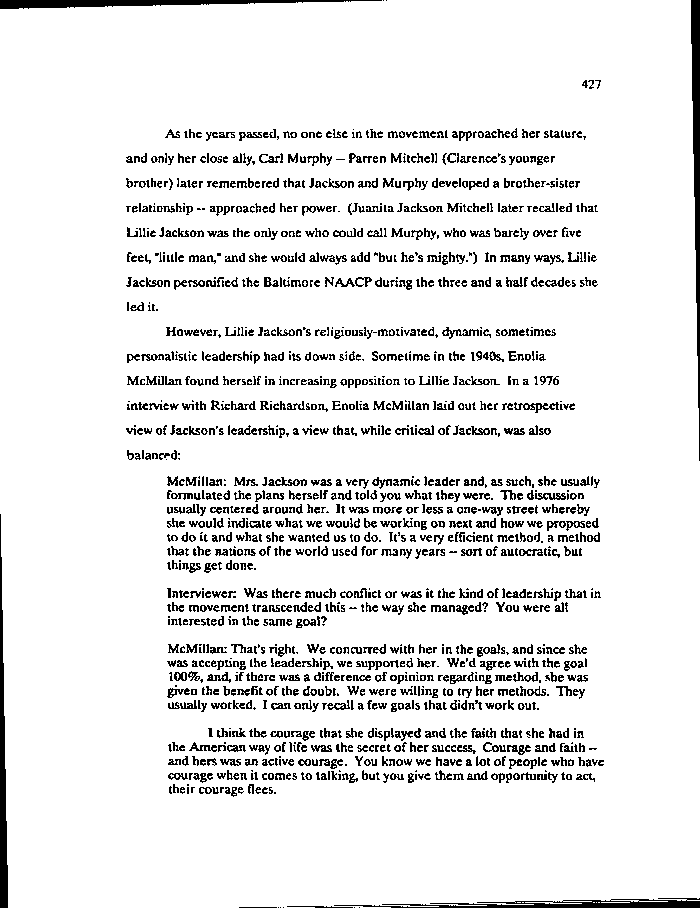|
427
As the years passed, no one else in the movement approached her stature,
and only her close ally, Carl Murphy - Parren Mitchell (Clarence's younger
brother) later remembered that Jackson and Murphy developed a brother-sister
relationship — approached her power. (Juanita Jackson Mitchell later recalled that
Ullie Jackson was the only one who could call Murphy, who was barely over five
feet, "little man," and she would always add "but he's mighty.") In many ways, Lillie
Jackson personified the Baltimore NAACP during the three and a half decades she
led it.
However, Lillie Jackson's religiously-motivated, dynamic, sometimes
personalistic leadership had its down side. Sometime in the 1940s, Enolia
McMillan found herself in increasing opposition to Lillie Jackson. In a 1976
interview with Richard Richardson, Enolia McMillan laid out her retrospective
view of Jackson's leadership, a view that, while critical of Jackson, was also
balanced:
McMillan: Mrs. Jackson was a very dynamic leader and, as such, she usually
formulated the plans herself and told you what they were. The discussion
usually centered around her. It was more or less a one-way street whereby
she would indicate what we would be working on next and how we proposed
to do it and what she wanted us to do. It's a very efficient method, a method
that the nations of the world used for many years — sort of autocratic, but
things get done.
Interviewer: Was there much conflict or was it the kind of leadership that in
the movement transcended this - the way she managed? You were all
interested in the same goal?
McMillan: That's right. We concurred with her in the goals, and since she
was accepting the leadership, we supported her. We'd agree with the goal
100%, and, if there was a difference of opinion regarding method, she was
given the benefit of the doubt. We were willing to try her methods. They
usually worked. I can only recall a few goals that didn't work out.
I think the courage that she displayed and the faith that she had in
the American way of life was the secret of her success, Courage and faith -
and hers was an active courage. You know we have a lot of people who have
courage when it comes to talking, but you give them and opportunity to act,
their courage flees.
|

